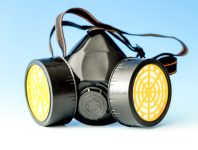A Look at Common Ski Area SPCC Violations
A Look at Common Ski Area SPCC Violations Having an SPCC Plan that was not fully implemented. 40 CFR Section 112.3, states, “The owner or operator or an onshore or offshore facility subject to this section must prepare in writing and implement a Spill Prevention, Control, and Countermeasure Plan … in accordance with 112.7 [General […]










